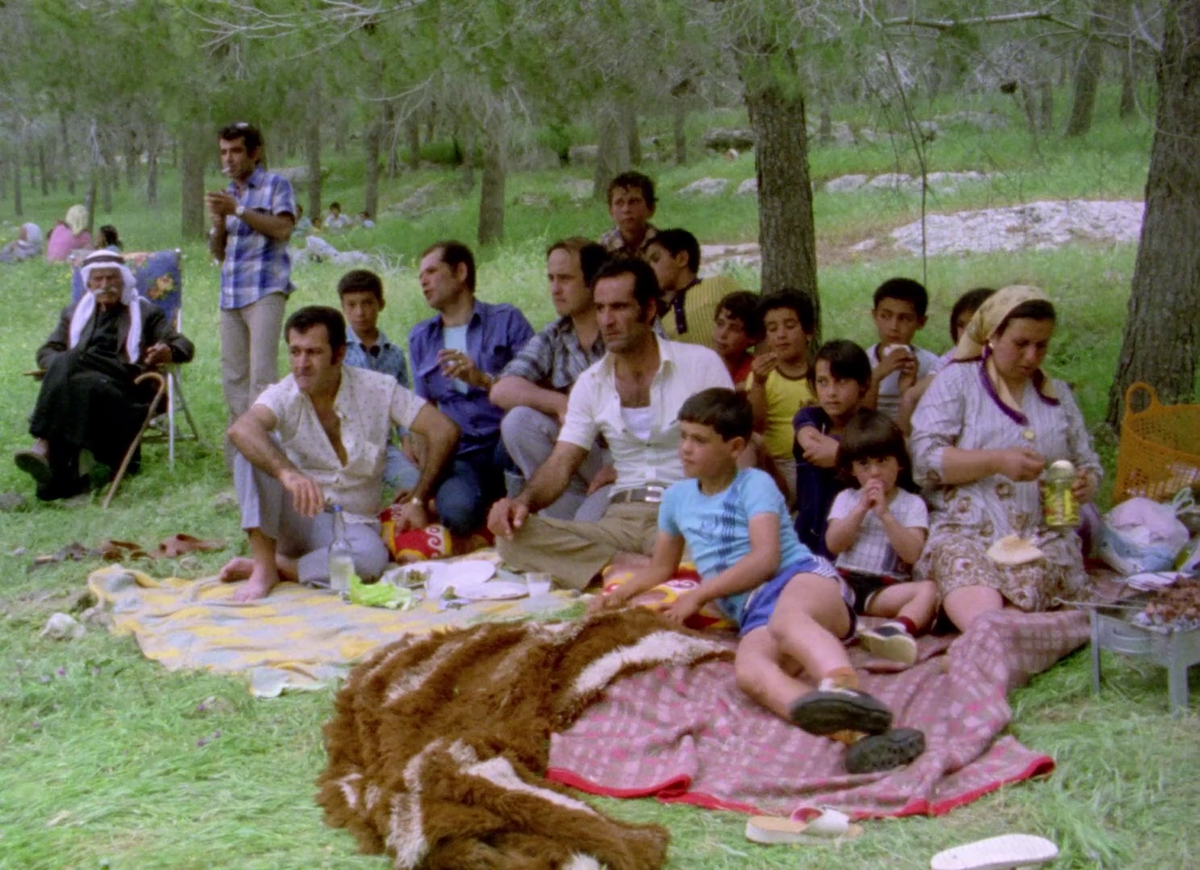
Museum of the Moving Image
36-01 35th Ave
Queens, NY
Wednesday, May 8
7 pm
Join us on Wednesday, May 8 at the Museum of the Moving Image in Astoria where we will be co-presenting a screening of Michel Khleifi’s Fertile Memory (1981) for the opening night of the Prismatic Ground Festival. Recently restored by the Royal Belgian Film Archive, Khleifi’s first film is a visceral, poetic glimpse of everyday life in the occupied West Bank.
The screening will be preceded by a reading from poet Hala Alyan and followed by a discussion with researcher/writer/curator Adam HajYahia.
Khleifi’s second film, the short documentary Ma'loul Celebrates Its Destruction (1984), will be free to stream for the duration of the festival (May 8–12) on prismaticground.com.
Michel Khleifi
Fertile Memory
1981, 99 min, DCP
Arabic with English subtitles
The first feature length film to be shot in the West Bank, Fertile Memory is a portrait of two Palestinian women whose individual struggles both define and transcend the dispossession that heavily determines their lives. Romia Farah — the director’s aunt — is a widowed grandmother working in an Israeli garment factory. Her tenacious personality fuels a decades-long legal battle to reclaim her expropriated land. Sahar Khalifa is a feminist writer teaching at Birzeit University; she struggles with the double oppression of Israeli occupation and the gendered ostracization and loneliness she experiences after seeking a divorce. Fertile Memory marks a distinct shift in Palestinian filmmaking, from a unified revolutionary cinema, to a capacious reflection of Palestinian society and its many contradictions, landscapes, and temporalities.
$20 General Admission
Tickets available on the Museum of the Moving Image website
Michel Khleifi
Ma'loul Celebrates Its Destruction
1984, 32 min, streaming in HD
Arabic with English subtitles
Once a year, on “Israeli Independence Day” — also known as Nakba day — the former residents of the destroyed Palestinian village of Ma’loul are permitted to enter the ruins of their birthplace. The village, like countless others, was previously a mixed agrarian community of Muslims and Christians. Today, the churches are used to house cattle and garbage for a nearby kibbutz; the military has built a base; and commemorative plaques and trees planted through the Jewish National Fund obfuscate the landscape for those who once knew it intimately. Ma’aloul intercuts scenes of the villagers communing in remembrance with archival footage, along with a depiction of a Palestinian teacher presenting the history of the creation of the state of Israel to his students, as mandated by Israeli curriculum.
Free
Streaming May 8–12 on prismaticground.com